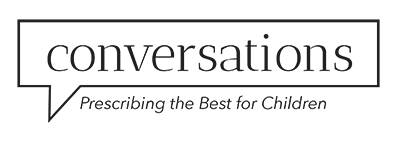Chores
Children do best when they are connected to their parents, and chores help children develop this connectivity. Pediatricians should encourage parents to use chores as a teaching tool as well as a method of maintaining family cohesiveness.
BACKGROUND
Chores help children learn in many important ways. Chores teach children responsibility for themselves and others.Chores teach character traits. For example, learning to put toys and books away so they do not become damaged teaches children respect for property. Chores help children develop self-esteem as they learn how to accomplish a new and possibly difficult task. Chores help children learn important life skills, such as how to prepare food or mow the lawn. Most importantly, chores reinforce to children that they are useful and important members of the family, which helps them feel connected with and bonded to the family.
PROMOTING STRONG, STABLE FAMILIES
- Families are designed as the schoolroom for children, where they can learn necessary life skills and quality traits to help them become self-sufficient, self-controlled, and responsible adults.
- As children learn how to respond to parental authority, they also will learn how to respond to other authority figures outside their home, such as teachers, administrators, and employers.
- Chores help children feel connected and important to their families, and this connectedness helps them avoid high-risk behaviors during their adolescent years.
- Chores help children acknowledge the roles and responsibilities of parents and other family members. They help children prepare and plan for future jobs, marriages, and parenting.
SCIENTIFIC RESEARCH
The National Longitudinal Study on Adolescent Health has been following more than 40,000 adolescents since 1997. These adolescents were surveyed confidentially. In addition, 20,000 of these adolescents participated in “in-home” surveys, along with their parents.
The first article to appear in the literature on this group of adolescents demonstrated that the most protective factor in helping adolescents avoid high-risk behaviors was family and school connectedness. (1)
Given these research results, pediatricians and other health care providers should be doing everything possible to maintain family-child connectedness.
A study by Dr. Marty Rossmann of the University of Minnesota showed that the best predictor of adult success was whether the young adult helped out with household chores as a preschooler. (2) The research found the best outcomes when: Tasks were not overwhelming; Children were involved in choosing for which household chores they would be responsible; Chores were not tied to an allowance; Chores were started as a preschooler rather than when the child was older; and Chores were presented in a way that fit with the child’s learning style.
THE CONVERSATION
This conversation can happen during any well-visit.
This conversation involves any age patient, from Preschoolers to Teens.
Ask the child/teen, “What jobs do you do to help your family?” as part of every well child/adolescent visit.
If the child/teen does not answer, ask an age-appropriate question regarding chores.
- Preschooler—“Who sets the table for meals?” “Who feeds your pet?”
- Elementary—“Who sets and clears the table?” “Who puts your clean laundry away?”
- Early teen—“Who does your laundry?” “Are you learning to cook?”
- Teen—“Are you learning skills that you will need when you leave home? Do you know how to cook? How do you manage your money? Do you have a budget?”
If the child/teen has no responsibilities in the family, ask the parent(s) what they think they are teaching their child or how they are helping their child prepare for going off to college or for life in general.
See “Conversation: Connectedness” for additional information and resources.
REFERENCES
- Resnick MD, Bearman PS, Blum RW, et al. Protecting adolescents from harm: findings from the national longitudinal study on adolescent health. JAMA. 1997;278(10):823-832.
- Clarke, JI, Dawson, C, Bredehoft, D. How Much Is Too Much?: Raising Likeable, Responsible, Respectful Children–from Toddlers to Teens–in an Age of Overindulgence. Da Capo Press 2014. Massachusetts, https://www.amazon.com/previously-published-Enough-Children—Teens—ebook/dp/B00E257TLW/ref=sr_1_1?ie=UTF8&qid=1467297536&sr=8-1&keywords=How+Much+Is+Too+Much%3F%3A+Raising+Likeable%2C+Responsible%2C+Respectful+Children–from+Toddlers+to+Teens–in+an+Age+of+Overindulgence#navbar
RESOURCES
GoodParent.org, a website developed by pediatrician, Den Trumbull, MD, http://goodparent.org/parents/supervision/chores/.
